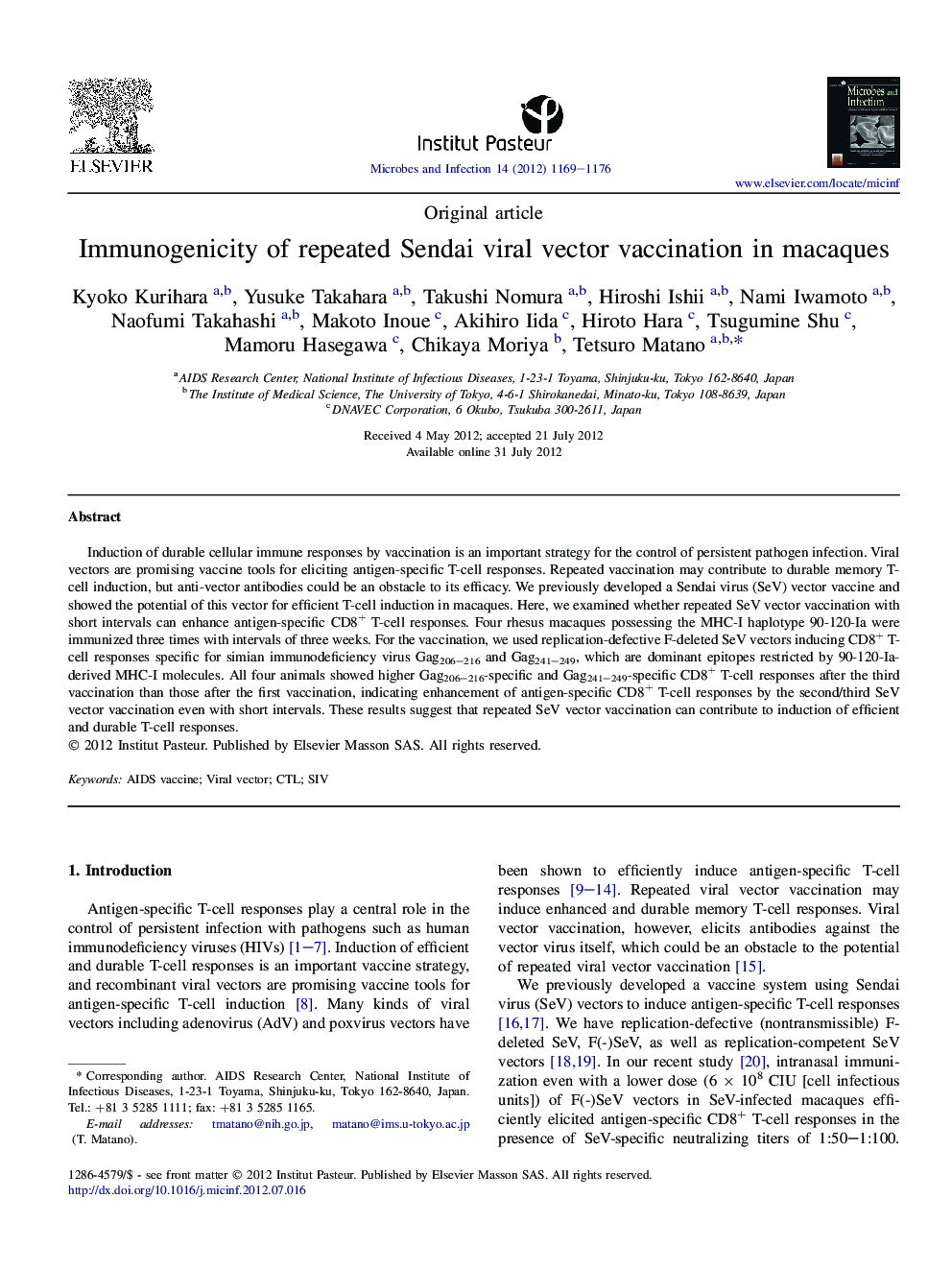| Article ID | Journal | Published Year | Pages | File Type |
|---|---|---|---|---|
| 6135951 | Microbes and Infection | 2012 | 8 Pages |
Abstract
Induction of durable cellular immune responses by vaccination is an important strategy for the control of persistent pathogen infection. Viral vectors are promising vaccine tools for eliciting antigen-specific T-cell responses. Repeated vaccination may contribute to durable memory T-cell induction, but anti-vector antibodies could be an obstacle to its efficacy. We previously developed a Sendai virus (SeV) vector vaccine and showed the potential of this vector for efficient T-cell induction in macaques. Here, we examined whether repeated SeV vector vaccination with short intervals can enhance antigen-specific CD8+ T-cell responses. Four rhesus macaques possessing the MHC-I haplotype 90-120-Ia were immunized three times with intervals of three weeks. For the vaccination, we used replication-defective F-deleted SeV vectors inducing CD8+ T-cell responses specific for simian immunodeficiency virus Gag206-216 and Gag241-249, which are dominant epitopes restricted by 90-120-Ia-derived MHC-I molecules. All four animals showed higher Gag206-216-specific and Gag241-249-specific CD8+ T-cell responses after the third vaccination than those after the first vaccination, indicating enhancement of antigen-specific CD8+ T-cell responses by the second/third SeV vector vaccination even with short intervals. These results suggest that repeated SeV vector vaccination can contribute to induction of efficient and durable T-cell responses.
Keywords
Related Topics
Life Sciences
Immunology and Microbiology
Immunology
Authors
Kyoko Kurihara, Yusuke Takahara, Takushi Nomura, Hiroshi Ishii, Nami Iwamoto, Naofumi Takahashi, Makoto Inoue, Akihiro Iida, Hiroto Hara, Tsugumine Shu, Mamoru Hasegawa, Chikaya Moriya, Tetsuro Matano,
